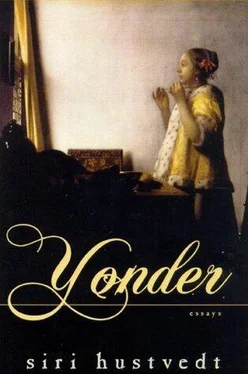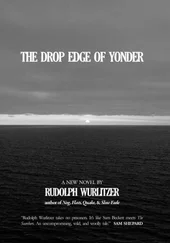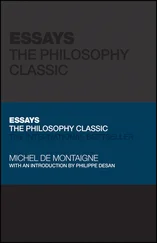The mistrust of signs in Our Mutual Friend includes a mistrust of literacy itself. Wegg tries to teach Boffin to read, but the wooden gentleman’s grasp of words is riddled by frequent mispronunciations and half-understood meanings. Lizzie Hexam accepts reading lessons from Eugene Wrayburn only after much thought, afraid not only of the seductive powers of her teacher but of the seduction of the signs themselves. Everyone who is normal acquires language. Not everybody learns to read. Reading is a further entrance into the abstraction of language and, in this novel, acquiring signs implies both distance and loss. But what does one lose? A critical connection to one’s origin. For Lizzie Hexam’s brother, Charley, literacy is a denial of his father and life on the river. He leaves home against his father’s wishes and becomes the protégé of the schoolmaster, Bradley Headstone. The chapter in which Charley leaves home is called “Cut Adrift.” The boy is disowned by his father, separated from his family, and refuses to heed his sister’s warnings about remembering where he comes from. Education makes Charley blind — to his sister’s goodness, to Headstone’s treachery, and to his own selfishness. Charley learns to read signs, but he loses his past.
Gaffer Hexam is a unique father in the novel. He is the only paternal figure who cannot read. Even more than that, his attitude toward literacy borders on the phobic. He is also a real presence, not a reflection, ghost, or sign. The man has lovingly brought up his daughter, and this counts for a lot in a book populated by indifferent, cruel, or disconnected fathers. Hexam is identified closely with the river — the place of the drowned and the unrecognizable, of found corpses and refuse, the place where John Harmon forgets his name, a place where names disappear, where one thing mingles with another. It is liquid in the same way that maternal space is liquid — like being in the womb and the time of early infancy: a time before consciousness or when consciousness is just dawning, a time before language, or before language has properly taken hold of us, before words have beaten what is free-floating into a defined shape. Gaffer Hexam himself refers to the river’s maternal function when he scolds his daughter for being squeamish about his “business” in the river. “How can you be so thankless to your best friend, Lizzie? The very fire that warmed you when you were a babby, was picked out of the river along side the coal barges. The very basket that you slept in, the tide washed ashore. The very rockers that I put it upon to make a cradle of it, I cut out of a piece of wood that drifted from one ship or another.” The splintering wood of countless metaphors in the novel, from sawdust to the woodcutter in John Harmon’s delirium, appears here as real wood dragged from the river. Gaffer recycles the river’s debris to sustain life like a mother — warming, rocking, and caring for the infant. And that “best friend” is somewhere in the past, a debt to be remembered. If language is the ordering feature of our world and means immersion in the Symbolic Order, to use Jacques Lacan’s term for it, it is clearly a gain, but it is also a loss. That early world is inaccessible except perhaps in isolated moments of unreason, not available to words. Our Mutual Friend is a book that in spite of itself wills the inclusion of the unarticulated, the forgotten, and the missing. Its language investigates the limits of language.
The novel creates a divide between dry letters — signs, symbols, literacy, which are associated with paternity, on the one side — and a liquid formlessness, on the other — the river, which is associated with the maternal. Characters caught between the divide face a double lure: a desire to drown themselves in oneness and a desire to back away in terror. But in the end, this simple division between two poles of human experience is not neat. It is troubled. The definition and clarity promised by the fathers usually don’t arrive. Order and identity are supposed to issue from the very figures who are themselves immersed in filth and chaos.
3 Waste
The father is the one who punishes. Guilt attracts him as it does the court officials. There is much to indicate that the world of the fathers and the world of the officials are the same.… The similarity does not redound to this world’s credit; it consists of dullness, decay and dirt. The father’s uniform is stained all over; his underwear is dirty. Filth is the element of the officials.
— Walter Benjamin
Benjamin is writing about Kafka, but the passage applies equally well to Dickens. Despite their function as the keepers of law and order, many figures of paternal authority are subject to the obscuring properties of filth. Waste is the miser’s domain in particular, and the book’s particular miser is John Harmon’s father, the king of refuse, who has so badly neglected his property that it, too, is turning to dust. It is helpful to remember that there were garbage brokers, or dustmen, in London during the nineteenth century and that Dickens is describing a real way of turning a profit in the city. Dust was shorthand for garbage, because of the immense quantities of ash that were discarded at that time. When the illiterate Boffin finds himself the garbage heir, he hires Wegg to read to him, among other things, Merryweather’s Lives and Anecdotes of Misers. Among its tales is one about a Mr. Dancer, who lives in a house that has been reduced by neglect to a “heap of ruins.” After he dies, “one of Mr. Dancer’s richest excretoires was found to be a dung-heap in a cow-house; a sum but little short of two thousand five hundred pounds was found in this rich piece of manure.” The parable makes money literally indistinguishable from feces. Freud made much of the connection between money and excrement, between holding back money and controlling one’s bowels. In Our Mutual Friend coin and feces join together as the property of the “filthy rich.” But there is something more to the story of Mr. Dancer. In order to uncover the treasure, the seeker had to bury himself in manure.
Waste is by definition that stuff we don’t want. Waste from our own bodies is particularly important because it was once us, and by getting rid of it, we make sure it is not us anymore. Wegg’s bone problem is essentially a question of symbolic borders and distances. When he says, “I should not like to find myself dispersed, a part of me here and a part of me there,” he articulates a real human fear. The fact is our bodies are not closed but open. We breathe and eat and cry tears. We urinate and defecate, feed our children and enter each other sexually. The world comes into us and goes out of us. And when we die, we are waste. The rituals for the dead help us to draw a firm line between the living body and what it will inevitably become — a corpse. But what happens if those lines are not well drawn, if they wobble and begin to move, if we lose our grip on the symbolic boundaries that keep us from falling out of ourselves?
4 Madness
… the horror of the thing hideously behind …
— Henry James, The Golden Bowl
Bradley Headstone goes mad. In him the failure of symbolic definition becomes psychosis, and the schoolteacher suffers from a loss of self in doubling, delirium, and seizures. Dickens does not give us Headstone’s personal history, and this blank is significant. All we know is that, like Charley Hexam, the schoolteacher has cut himself off from his past. There are no parents or siblings in his story, and their absence speaks to his utter isolation. Dickens gives a portrait of an unintegrated personality that goes to pieces under the strain of an overpowering libidinous desire.
Читать дальше












